Table of Contents
Welcome to the ultimate guide to finding the best commercial water leak detector! In this article, you will discover everything you need to know about selecting the most effective and efficient water leak detector for your commercial space.
From understanding the importance of early detection to comparing different features and technologies available in the market, we’ve got you covered.
So, sit back, relax, and let’s dive into the world of commercial water leak detectors! Have you ever experienced the frustration of a water leak in your commercial building?
Whether it’s a small leak that goes unnoticed or a major flood that causes extensive damage, water leaks can be a major headache for business owners.
But fear not, because in this article, we will discuss the best commercial water leak detectors on the market to help you protect your property and prevent costly water damage.
What is a Commercial Water Leak Detector?
Commercial water leak detectors are devices designed to monitor the moisture levels in your building and alert you to any potential leaks or flooding.
These detectors can be placed in areas prone to leaks, such as basements, bathrooms, kitchens, and mechanical rooms, to provide early warning of water damage.
By quickly detecting leaks, these devices can help you prevent costly repairs and minimize downtime in your business.
Why Do You Need a Commercial Water Leak Detector?
Water leaks can cause a wide range of problems for commercial buildings, including structural damage, mold growth, and health hazards.
By investing in a commercial water leak detector, you can protect your property and assets from the costly effects of water damage.
These detectors can give you peace of mind that your building is safe and secure, even when you’re not around to monitor it.
Types of Commercial Water Leak Detectors
There are several types of commercial water leak detectors available on the market, each with its own unique features and benefits. Here are some of the most common types of water leak detectors:
Spot Detectors
Spot detectors are small devices that can be placed in specific areas of your building to monitor for leaks. These detectors are typically battery-operated and emit a loud alarm when they detect moisture.
Spot detectors are ideal for use in areas where leaks are likely to occur, such as underneath sinks, around toilets, and near appliances.
Tape Detectors
Tape detectors are flexible strips that can be placed along the base of walls, floors, and ceilings to detect moisture.
These detectors work by sensing changes in moisture levels and can alert you to leaks before they cause extensive damage. Tape detectors are easy to install and can provide continuous monitoring of large areas in your building.
Wireless Detectors
Wireless detectors are connected to a central monitoring system via Wi-Fi or Bluetooth, allowing you to receive real-time alerts on your smartphone or computer.
These detectors are ideal for larger commercial buildings or businesses with multiple locations, as they can provide instant notifications of leaks no matter where you are.
Wireless detectors can also be integrated with other building systems, such as security and automation systems, for enhanced protection.
Probe Detectors
Probe detectors are sensors that can be inserted into walls, ceilings, or floors to detect moisture levels in hidden areas.
These detectors are ideal for detecting leaks in hard-to-reach places, such as behind walls or beneath flooring. Probe detectors can be connected to a central monitoring system or an alarm panel to provide you with instant alerts of water leaks.
Smart Detectors
Smart detectors are advanced devices that use artificial intelligence and machine learning algorithms to analyze moisture levels and predict potential leaks.
These detectors can learn the patterns and behaviors of your building’s water usage and provide customized alerts based on your specific needs.
Smart detectors can also be integrated with other smart devices, such as thermostats and lighting systems, for seamless automation and control.
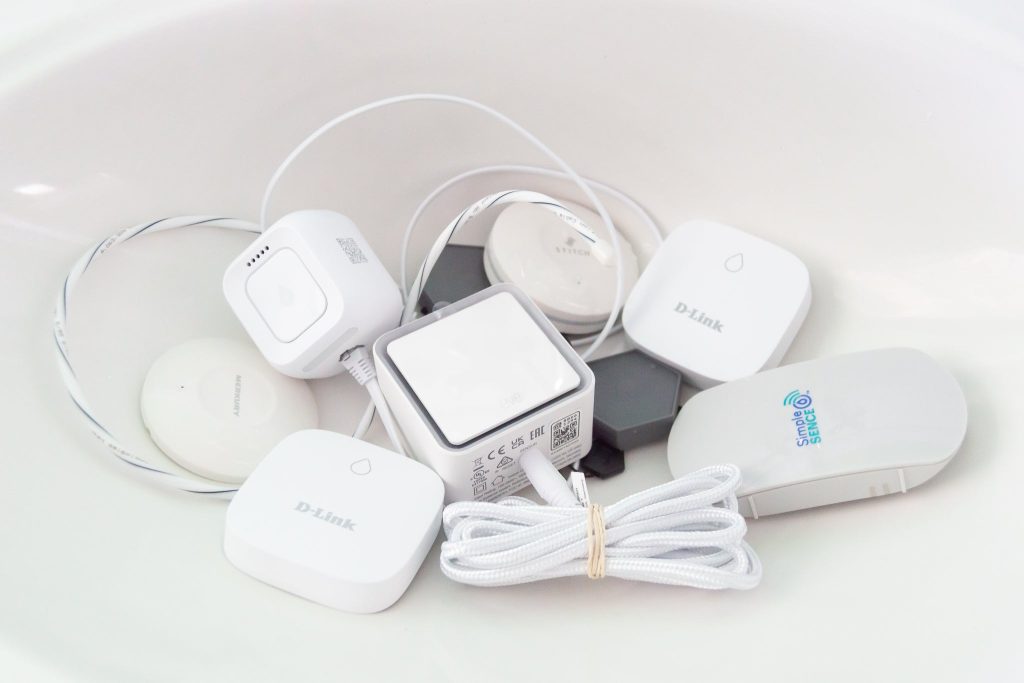
Features to Look for in a Commercial Water Leak Detector
When choosing a commercial water leak detector for your building, there are several key features to consider to ensure you get the best protection. Here are some important features to look for in a water leak detector:
Sensitivity
The sensitivity of a water leak detector determines how quickly it can detect moisture and alert you to potential leaks. Look for detectors with adjustable sensitivity levels that can be customized to your building’s needs.
Alarm System
Choose a water leak detector with a loud and easily recognizable alarm system that will alert you to leaks even in noisy commercial environments. Some detectors also come with flashing lights or vibrating alerts for added visibility.
Remote Monitoring
Consider a water leak detector that offers remote monitoring capabilities, such as Wi-Fi or Bluetooth connectivity.
This feature allows you to receive alerts on your smartphone or computer, so you can stay informed of leaks no matter where you are.
Battery Life
Opt for a water leak detector with long-lasting battery life to ensure continuous monitoring of your building. Some detectors come with rechargeable batteries or power-saving modes to extend their lifespan.
Multiple Sensors
Look for a water leak detector with multiple sensors that can be placed in different areas of your building for comprehensive coverage. Some detectors come with additional sensors that can be added or customized to suit your specific needs.
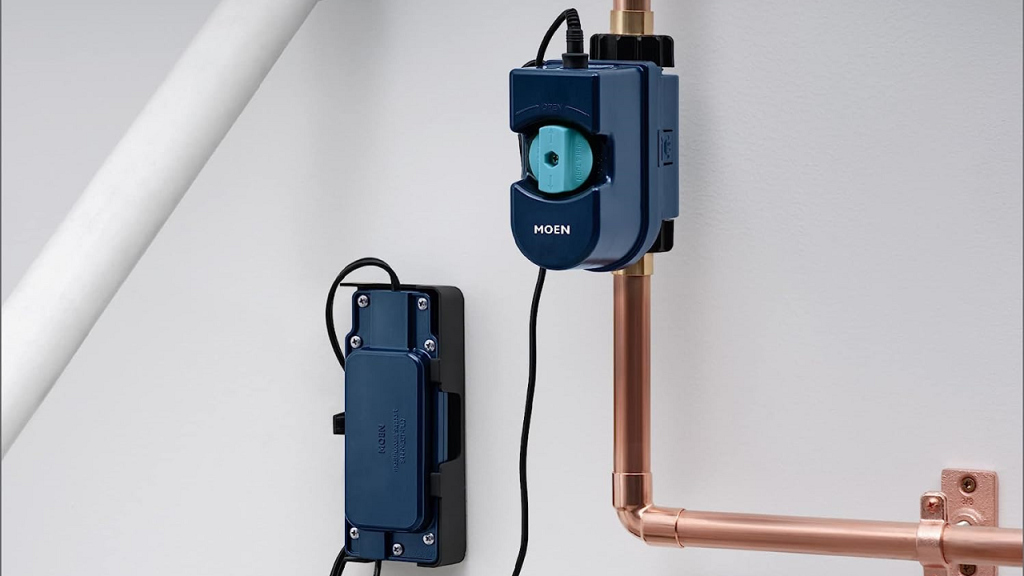
Top Commercial Water Leak Detectors on the Market
Now that you know what to look for in a commercial water leak detector, let’s take a look at some of the top-rated detectors available on the market:
| Brand | Model | Type | Features | Price |
|---|---|---|---|---|
| Acme Inc. | LeakMaster | Wireless | Remote monitoring, multiple sensors | $299 |
| FloSense | AquaGuard | Smart | AI analysis, customizable alerts | $349 |
| LeakStopper | ProProbe | Probe | Hidden leak detection, alarm system | $199 |
| WaterGuard | LeakSentry | Spot | Compact design, long battery life | $149 |
| SureSeal | SmartSense | Wireless | Real-time alerts, integration | $279 |
Acme Inc. LeakMaster
The Acme Inc. LeakMaster is a wireless water leak detector that offers remote monitoring and multiple sensors for comprehensive coverage of your building. This detector is easy to install and can be customized to suit your specific needs, making it a great choice for commercial properties of all sizes.
FloSense AquaGuard
The FloSense AquaGuard is a smart water leak detector that uses artificial intelligence to analyze moisture levels and provide customizable alerts.
This advanced detector can learn the patterns of your building’s water usage and alert you to leaks before they become a problem, making it an ideal choice for businesses that prioritize proactive maintenance.
LeakStopper ProProbe
The LeakStopper ProProbe is a probe water leak detector that can detect hidden leaks in hard-to-reach areas of your building.
This detector comes with an alarm system that alerts you to leaks as soon as they are detected, helping you prevent costly water damage in your commercial property.
WaterGuard LeakSentry
The WaterGuard LeakSentry is a spot water leak detector that offers compact design and long battery life for continuous monitoring of your building.
This detector is easy to install and provides reliable alerts of water leaks, making it a cost-effective solution for businesses on a budget.
SureSeal SmartSense
The SureSeal SmartSense is a wireless water leak detector that offers real-time alerts and integration with other smart devices for seamless automation and control.
This detector is ideal for businesses that want to streamline their building’s monitoring and maintenance processes, providing peace of mind and security.
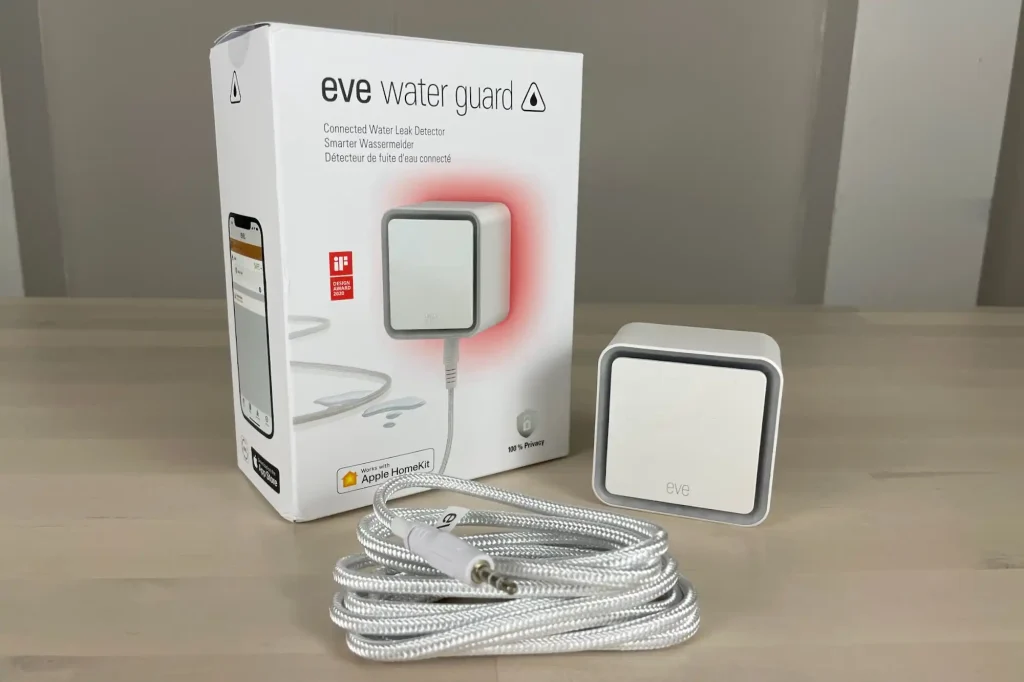
FAQs
How Do Water Companies Detect Leaks?
Water companies employ a variety of sophisticated techniques to identify leaks in their vast networks of pipes. One common method involves using acoustic sensors that can pick up the telltale sounds of water escaping from pipes.
These sensors are often mounted on vehicles that patrol the streets, listening for anomalies that might indicate a leak beneath the surface.
In addition to acoustic detection, water companies also rely on satellite imagery and thermal mapping to spot potential leak areas.
By analyzing changes in vegetation growth or temperature differences on the ground, they can pinpoint locations where water might be seeping out unnoticed.
Some utilities have even begun using artificial intelligence to analyze data from smart meters, helping them detect unusual patterns of water usage that could signal a leak on a customer’s property.
What Equipment Is Used For Water Leak Detection?
The arsenal of tools used for water leak detection is diverse and ever-evolving. Ground microphones and listening sticks are classic instruments that allow technicians to hear the sound of water escaping from pipes.
More advanced gear includes correlators, which use multiple sensors to pinpoint the exact location of a leak by analyzing the time it takes for sound to travel through the pipe.
In recent years, leak detection technology has taken to the skies with the use of drones equipped with thermal imaging cameras.
These airborne helpers can survey large areas quickly, identifying temperature differences that might indicate the presence of underground leaks.
For smaller-scale detection, plumbers often use moisture meters and infrared cameras to locate water damage within buildings, even when it’s hidden behind walls or under floors.
How Can Leakage Of Water Be Detected?
Detecting water leakage often requires a multi-pronged approach, combining visual inspection with high-tech solutions.
One of the most basic yet effective methods is simply keeping an eye out for unusual wet spots, mold growth, or unexplained increases in water bills.
For more subtle leaks, professionals might use tracer gases that can be injected into water systems and detected as they escape through even the tiniest of cracks.
Another innovative technique involves the use of fiber optic cables laid alongside water pipes. These cables can detect changes in temperature and strain caused by leaks, allowing for real-time monitoring of pipeline integrity.
Some water utilities have also started using satellite technology to scan large areas for soil moisture anomalies that could indicate underground leaks, revolutionizing the way we approach large-scale leak detection.
How Does A Water Leak Detector Work?
Water leak detectors come in various forms, but most operate on similar principles. Many household detectors are simple devices that sound an alarm when they come into contact with water, alerting homeowners to potential flooding.
More sophisticated models use sensors to detect changes in humidity or temperature, which can indicate the presence of a hidden leak before visible damage occurs.
Professional-grade leak detectors often utilize acoustic technology to listen for the sound of water escaping from pipes.
These devices can pick up ultrasonic frequencies that the human ear can’t detect, allowing technicians to locate leaks with remarkable precision.
Some advanced systems even use machine learning algorithms to differentiate between the normal sounds of water flow and the distinctive noise of a leak, improving accuracy and reducing false positives.
How Do Plumbers Detect Leaks?
Plumbers are like detectives when it comes to finding leaks, using a combination of experience, intuition, and technology.
They often start with a visual inspection, looking for telltale signs like water stains, mold, or unusually lush patches of grass over buried pipes.
For less obvious leaks, plumbers might use pressure gauges to test the integrity of pipe systems, identifying sections where pressure drops unexpectedly.
When dealing with hidden leaks, plumbers turn to more advanced tools. Video inspection cameras can be snaked through pipes to visually inspect for damage, while thermal imaging cameras can detect temperature differences caused by water leaks behind walls or under floors.
In some cases, plumbers might even use harmless dyes or smoke tests to trace the path of leaks through complex plumbing systems, ensuring they find the true source of the problem rather than just treating symptoms.
How Do Water Companies Calculate Leakage?
Calculating water leakage is a complex task that water companies approach with a mix of science and estimation. One common method involves comparing the amount of water that enters the distribution system with the amount that’s billed to customers.
The difference, minus authorized unbilled usage (like firefighting), gives an estimate of water lost to leaks. However, this method can be imprecise due to factors like meter inaccuracies and unauthorized water use.
To refine their calculations, many water companies divide their networks into smaller District Metered Areas (DMAs). By monitoring flow into and out of these areas, especially during night hours when legitimate water use is minimal, utilities can get a more accurate picture of leakage rates.
Some companies are also adopting smart meter technology and data analytics to improve their leakage estimates, using algorithms to detect anomalies that might indicate leaks or other issues in the system.
Which Method Is Best For Leak Detection?
The “best” method for leak detection often depends on the specific situation, as each technique has its strengths and limitations. For large-scale urban water networks, acoustic leak detection combined with data analytics from smart meters has proven highly effective.
This approach allows water companies to quickly identify and locate leaks across vast areas, minimizing water loss and potential damage to infrastructure.
In residential settings, a combination of visual inspection and moisture detection tools often yields the best results. Thermal imaging cameras can be particularly useful for finding hidden leaks without causing damage to walls or floors.
However, for complex or stubborn leaks, the most effective approach is often a multi-method one, combining several techniques to cross-verify findings and ensure no leak goes undetected.
What Are Three Leak Detecting Devices?
Among the myriad of leak detection tools available, three stand out for their effectiveness and widespread use. First, acoustic leak detectors, which include ground microphones and correlators, are essential for pinpointing leaks in buried pipes.
These devices can detect the sound of water escaping from pipes, even through layers of soil and pavement, making them invaluable for municipal water departments and plumbing professionals alike.
Second, thermal imaging cameras have revolutionized leak detection in buildings. By visualizing temperature differences, these cameras can reveal the presence of water behind walls or under floors without the need for destructive investigation.
Lastly, moisture meters are indispensable tools for confirming the presence of excess moisture in building materials.
These handheld devices can detect elevated moisture levels in walls, floors, and ceilings, helping to locate leaks and assess the extent of water damage.
What Is The Most Common Method Of Leak Detection?
While technology continues to advance, visual inspection remains the most common starting point for leak detection in many situations.
This tried-and-true method involves carefully examining pipes, fixtures, and surrounding areas for signs of water damage, mold growth, or unusual moisture.
In residential settings, homeowners and plumbers often rely on this approach as a first line of defense against leaks, as it requires no special equipment and can quickly reveal obvious problems.
However, for more systematic leak detection, especially in municipal water systems, acoustic methods have become the go-to solution.
The use of listening devices to detect the sound of water escaping from pipes is now standard practice for many water utilities.
This method balances effectiveness with practicality, allowing technicians to survey large areas relatively quickly and pinpoint leaks with good accuracy.
As technology improves, acoustic leak detection is becoming increasingly sophisticated, incorporating advanced signal processing and machine learning to enhance its capabilities.
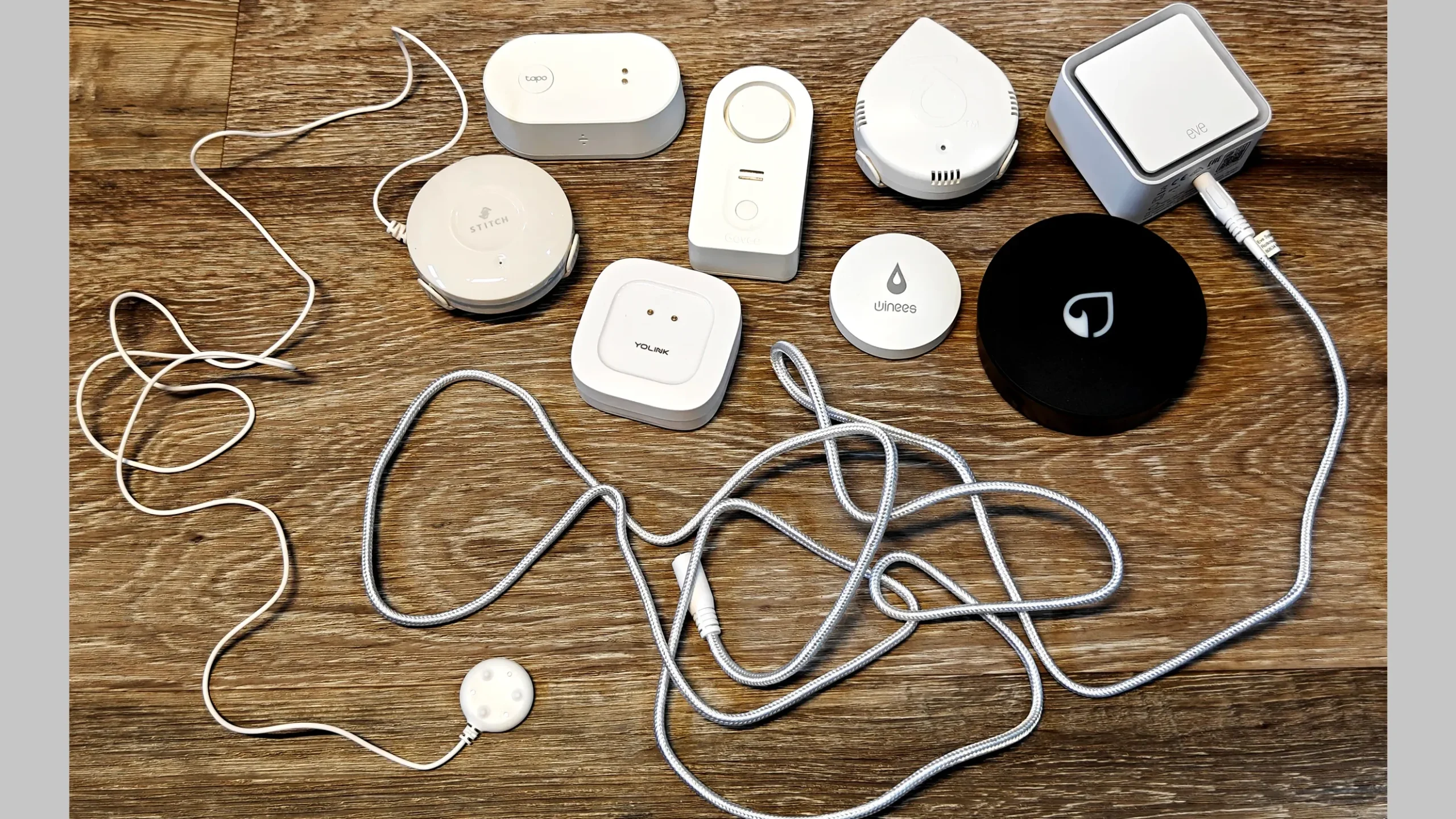
Conclusion
In conclusion, investing in a commercial water leak detector is essential for protecting your property and assets from the costly effects of water damage.
By choosing a detector with the right features and functionality, you can prevent leaks, minimize downtime, and ensure the safety and security of your building.
Whether you opt for a spot detector, tape detector, wireless detector, probe detector, or smart detector, there are plenty of options available to suit your specific needs.
So don’t wait until it’s too late – get a commercial water leak detector today and enjoy the peace of mind that comes with knowing your building is safe and secure.

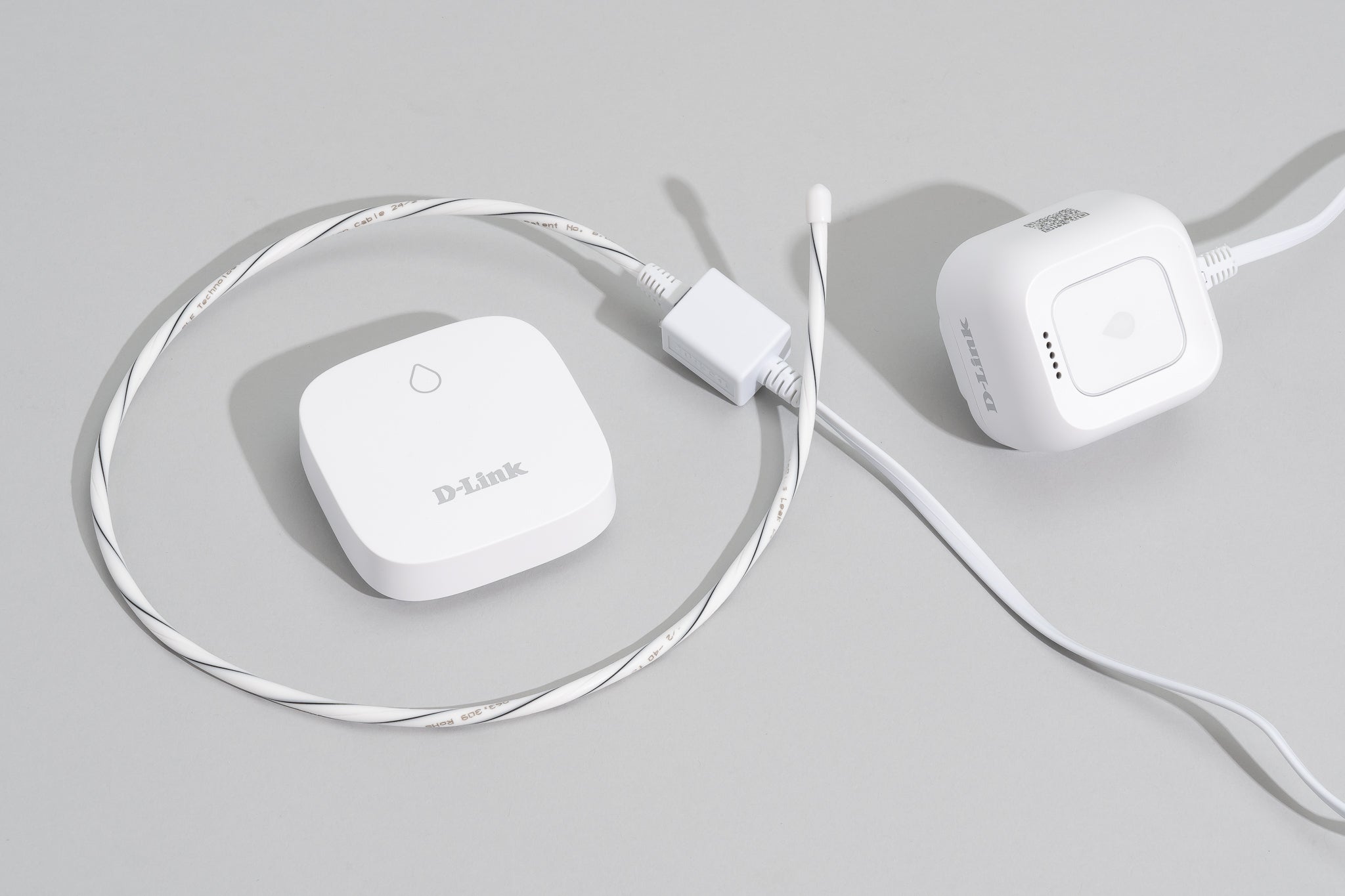
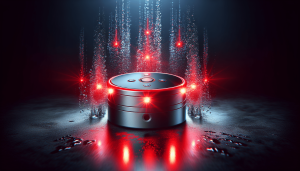

Pingback: How To Install Water Leak Detector:7 Steps - homeprotexlink
Pingback: Where Do You Put A Water Leak Detector? - homeprotexlink
Pingback: Flood Buzz Water Leak Detector - homeprotexlink